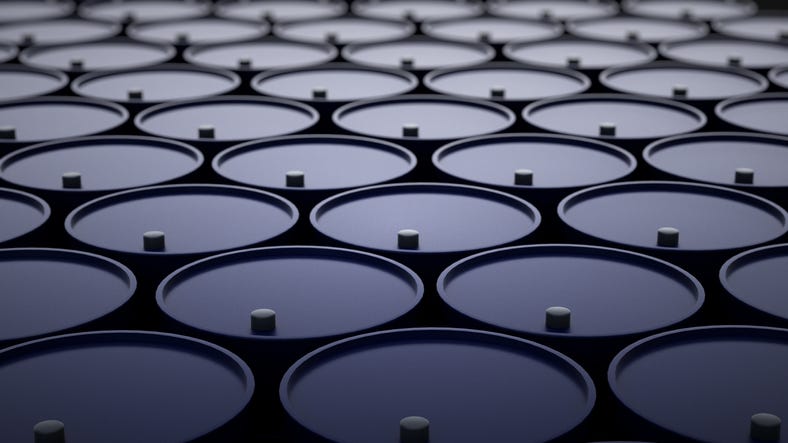
The average price of a gallon of gas in the U.S. has hit $4.06, up 40 cents from its averages last week, hitting numbers not seen since the 2008 recession.
And experts are warning it could only get worse.
Patrick De Haan from the gas monitoring company GasBuddy joined News Talk 830 WCCO's Chad Hartman to discuss what is going on with the gas industry and why prices are skyrocketing.
The highest average for a gallon of gas ever seen in the U.S. is $4.11, which could be passed soon as prices everywhere continue to rise, almost hitting $5 a gallon in places like California.
One reason that oil prices have seen a jump, besides inflation, is the recent invasion of Ukraine, and De Haan shared what would happen if the U.S. banned Russian oil and gas — which accounts for nearly 10% of the nation's fuel imports.
"I think that's going to open up a new chapter," De Haan said, adding that sanctions on Russia have already strained its ability to sell crude oil.
While legislators are calling for the U.S. to ban all imports of fuel from Russia, De Haan says the major impact would come if the European Union decided to cut Russia off.
"If the U.S. comes out and says that, I would be looking to see what Europe would do," De Haan said. "Because many of the countries in the E.U. are strong partners with the U.S. and the E.U., for its part, has said it's not going to cut off the flow of oil."
When it comes to how the decision would impact the price of oil if the E.U. changed its mind, De Haan described a dangerous scenario.
"If the E.U. doesn't join, I think it would be a minimum impact, but if they surprisingly do an about face, which seems unlikely, the skies the limit," De Haan said. "$150, $200 oil potentially because Europe has no backup, they are tied to the hip with Russia."
De Haan shared that the highest the price of oil has ever been was around $147 a barrel in 2008, and right now, the price point sits at about $120, meaning we could break the record soon.
With everyone frustrated that prices are up at the pump, many have flocked to their political sides to point fingers. However, De Haan shared that the person sitting in the White House had little to do with low gas prices seen in the last year of Donald Trump's presidency.
"The decline happened in March, call it April, of 2020," De Haan said. "I think most people that look at the data could definitively say, 'Oh hey, I think there was something that happened around March or April of 2020.'"
When the pandemic hit and the price of gas dropped due to demand plummeting, De Haan said gas companies quit producing.
"They slammed the brakes on. They shut down production. They sent thousands of workers home because there's no way to sustain the cash flow they needed when oil went negative," De Haan said. "Even when oil was $20 a barrel, they were losing money. So it was COVID that derailed the energy independence we had."
On the bright side, De Haan said that the U.S. oil production has returned with 1.5 million barrels a day being produced, but they are still 1.3 million barrels below pre-COVID levels, something he said could be fixed.
"Oil companies could do that; there is literally nothing in their way," De Haan said. "If they want to raise output another million barrels back to pre-COVID levels, there is nothing stopping them. There is nothing Biden has done to stop them."
However, De Haan said that Biden saying he was going to "attack" the oil and gas sector when he got into office has made them hesitant to raise production.
"The president made the grave mistake of coming out swinging getting into the White House. You can't deny that it changes the optics," De Haan said. "It is not good that President Biden entered the White House and did that. It is not helping the situation. However, it is not making the situation drastically worse. We can thank Russia and COVID for most of the degree of pain at the pump."
Along with other industries struggling with supply issues and labor shortages, De Haan said that the oil and gas industry is seeing the same problems.
So when an argument is made that Biden shutting down the Keystone oil pipeline has raised gas prices, De Haan disagrees because oil companies still couldn't find staff and produce oil.
"You could build a Keystone, and it could look pretty sitting there," De Haan said. "The problem is there is very little to put in it right now."
He continued saying, "when we talk about 'Oh the president killed the Keystone, and that caused oil prices to go up.' That argument doesn't hold weight because this is a global increase in the price of oil. This is not just a U.S.-specific issue. It's a global one."


